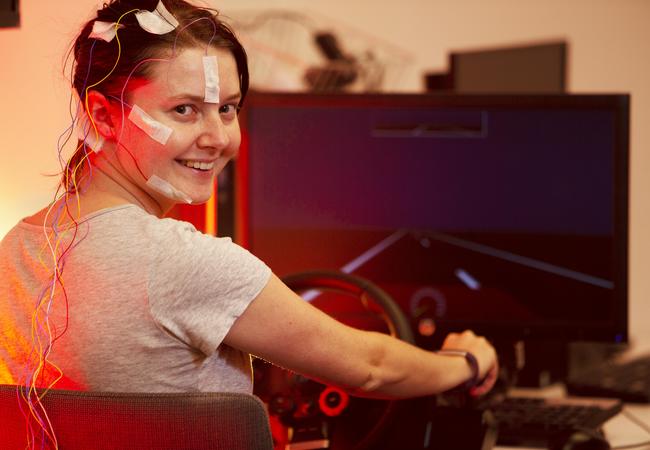Adelaide researchers seek legal minimum of five hours’ sleep before driving
How many hours of sleep do you need to drive safely? We have rules around drugs, alcohol and speeding, what about fatigue? SA researchers have the answer.
SA News
Don't miss out on the headlines from SA News. Followed categories will be added to My News.
Adelaide researchers want to set the legal limit for driver fatigue, below which a driver could be “deemed impaired” and fined or sent to prison.
Evidence suggests that limit should be set at four to five hours sleep in the past 24 hours, or ten to 12 hours in the past 48 hours, they argue in the journal Accident Analysis and Prevention.
Professor Drew Dawson is calling for a driver safety awareness campaign with the slogan: “Less than five and you shouldn’t drive”.
“At the moment what we say to people is ‘Don’t drive if you’re tired’, which is the equivalent of saying to ‘Don’t drive if you’re pissed (drunk)’,” Prof Dawson said.
As director of the Appleton Institute at Wayville, part of CQUniversity Australia, Prof Dawson leads highly regarded research into sleep and fatigue.
He is seeking to address the lag in changing community standards around impairment due to fatigue, which has fallen behind community standards around intoxication.
“Speeding related accidents and drink-driving related accidents have been significantly reduced in the last 20 or 30 years,” he said.
“Fatigue (related accidents) have not and as a proportion of overall accidents it’s going up.”

Roadside measurement of fatigue and prior sleep-wake behaviour is not yet possible, but evidence shows that driving on less than five hours sleep will increase the likelihood of accident and injury like drug and alcohol intoxication.
A comprehensive review of the impairment and accident literature including 44 relevant publications has provided the evidence to determine “what constitutes an unacceptable level of impairment” and this could now form the basis of a public awareness campaign.
Multiple studies provided clear evidence that reduced sleep impaired performance equivalent to that of moderate alcohol intoxication (0.05− 0.10 per cent blood alcohol concentration).
While the RAA safety and infrastructure senior manager Charles Mountain agrees that “fatigue has a big impact on people’s ability to drive safely”, he’s cautious about adopting the new slogan.
“Look, I think any kind of messaging that raises awareness of a driver’s responsibility to ensure that they are in a sound condition to drive safely and effectively is very important,” he said.
“Whether that actual messaging is appropriate, is something we have to have a closer look at.”
A spokesperson for the transport department said fatigue was considered to have been a causal factor in a crash if it occurred during the critical times of midnight-6am and 2pm-4pm.
The department does not conduct specific forensic investigations into whether sleeping behaviour contributed to a crash, but it has identified reduction of driver fatigue as a focus area for its new road safety strategy.





